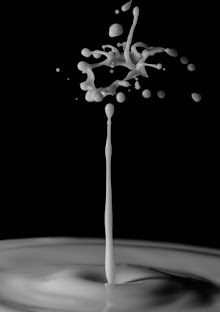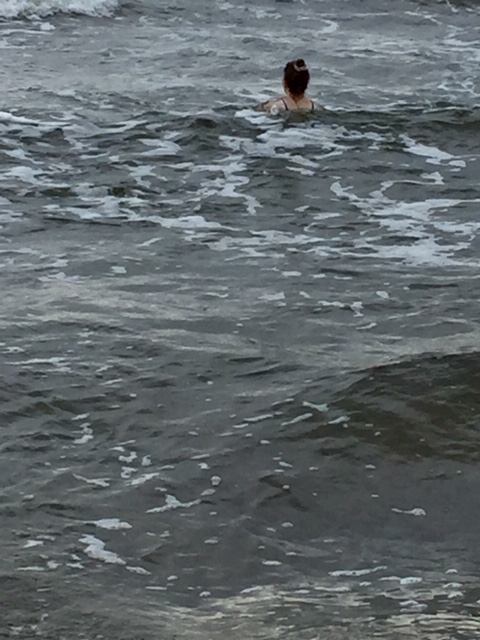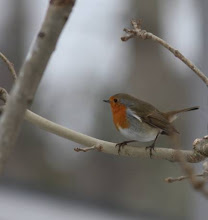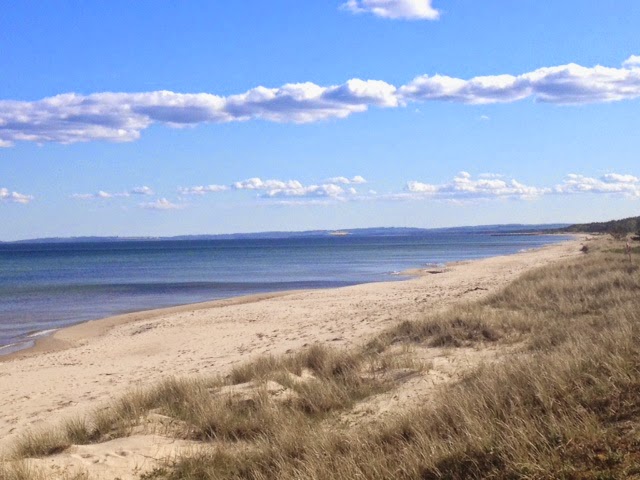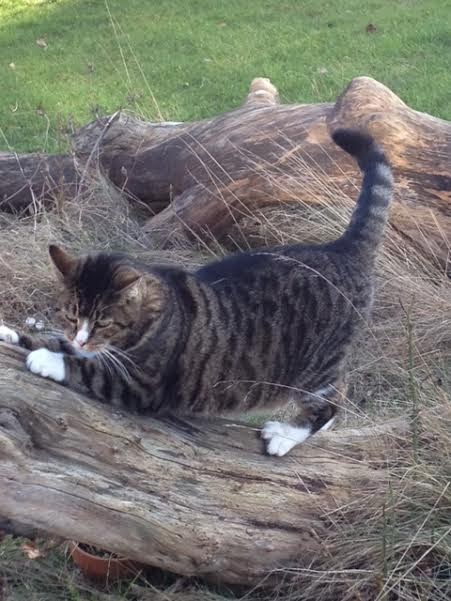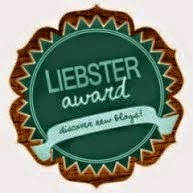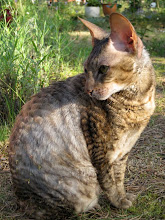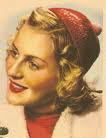
 History of the Rain. Ruth Swain, the bedridden daughter of a dead poet, home from school
after a collapse, is trying to find her father through stories - and
through generations of family history in County Clare. In order to do
this Ruthie turns to the three thousand, nine hundred and fifty eight
books piled high that her father left behind. His entire, vast library
moved to her bedroom which she pledges to work her way through while
she’s still living.
History of the Rain. Ruth Swain, the bedridden daughter of a dead poet, home from school
after a collapse, is trying to find her father through stories - and
through generations of family history in County Clare. In order to do
this Ruthie turns to the three thousand, nine hundred and fifty eight
books piled high that her father left behind. His entire, vast library
moved to her bedroom which she pledges to work her way through while
she’s still living.Niall Williams was born in Dublin in 1958. He is the author of eight novels including John and Four Letters of Love for which he has recently completed the screenplay for Element Pictures. He lives in Kiltumper in County Clare, with his wife, Christine.


Ali Smith was born in Inverness in August 1962. She won the Saltire First Book Award and a Scottish Arts Council Award in 1995 for her first collection of stories, Free Love. Her first novel, Like, was published in 1997.
Hotel World, her second novel, was shortlisted for the 2001 Booker Prize and the Orange Prize. The Accidental, was shortlisted for The Man Booker Prize in 2005. How To Be Both is longlisted for the Man Booker Prize 2014.
She lives in Cambridge.
How to be Both is a novel all about art's versatility. Borrowing from painting's fresco technique to make an original literary double-take, it's a fast-moving genre-bending conversation between forms, times, truths and fictions. There's a renaissance artist of the 1460s. There's the child of a child of the 1960s. Two tales of love and injustice twist into a singular yarn where time gets timeless, structural gets playful, knowing gets mysterious, fictional gets real - and all life's givens get given a second chance.


In Orfeo, Powers tells the story of a man journeying into his past as he desperately flees the present. Seventy-year old avant-garde composer Peter Els opens his front door one evening to find the police on his doorstep. His home microbiology lab – the latest experiment in his lifelong attempt to discover musical patterns in DNA strands – has come to the attention of Homeland Security. Panicked by the raid, Els flees and turns fugitive, waiting for the evidence to clear him and for the alarm to blow over. But alarm turns to national hysteria, as the government promises a panicked nation that the ‘Bioterrorist Bach’ will be found and brought to trial. As Els feels the noose around him tighten, he embarks on a cross-country trip to visit, one last time, the people he loves, those who shaped his musical journey. Through the help of his ex-wife, his daughter, and his longtime artistic collaborator, Els comes up with a plan to turn his disastrous collision with national security into one last, resonant, calamitous artwork that might reach an audience beyond his wildest dreams.
Richard Powers has been a recipient of a Lannan Literary Award and a MacArthur Fellowshop, as well as a winner of the US National Book Award and a finalist for the Pulitzer Prize. He is the author of eight novels, including The Time of our Singing, Plowing the Dar, and Gain. He lives in Los Angeles.


In 2007, a New York attorney bumps into an old college buddy – and accepts his friend’s offer of a job in Dubai, as the overseer of an enormous family fortune. Haunted by the collapse of his relationship and hoping for a fresh start, our strange hero begins to suspect that he has exchanged one inferno for another.
The Dog is led by a brilliantly entertaining anti-hero. Imprisoned by his endless powers of reasoning, hemmed in by the ethical demands of globalized life, he is fatefully drawn towards the only logical response to our confounding epoch.
Joseph O’Neill was born 1964 in Cork, and is an Irish lawyer, novelist and non-fiction writer.
O'Neill's novel Netherland was awarded the 2009 PEN/Faulkner Award for Fiction and was longlisted for the 2008 Man Booker Prize.
Before Netherland O’Neill had written two previous novels, This Is The Life and The Breezes, and a memoir, Blood Dark Track. His most recent book, The Dog, is longlisted for the Man Booker Prize 2014.
O'Neill also writes literary and cultural criticism, most regularly for the Atlantic Monthly.
Since 1998 he has lived in New York City.


Us by David Nicholls tells the story of Douglas Petersen, whose marriage of twenty-one years to Connie is almost over. When Autumn comes around, their son Albie will leave for university. Connie has decided to leave soon after.
But there's still the summer holidays to get through - a Grand Tour of Europe's major cities - and over the course of the journey, Douglas devises a plan to win back the love of his wife and repair his troubled relationship with his son. Forced to understand why his marriage is in tatters, he looks back to the beginning of their relationship and learns once again whom he fell in love with.
Us is the history of a family, recounted over the course of what may well be their final weeks together. It's a comedy about the demands of living together, about parenthood, about the relationship between reason and emotion, art and science, parents and children, middle-age and youth.
David Nicholls trained as an actor before making the switch to writing.
David's bestselling first novel, Starter for Ten, was selected for the Richard and Judy Book Club in 2004, and David has written the screenplays for film versions of both Starter for Ten (released in 2006, starring James McAvoy) and The Understudy (not yet released).
David Nicholls' third novel, One Day, was published in hardback in 2009 to extraordinary critical acclaim, and stayed in the Sunday Times top ten bestseller list for ten weeks on publication. It has since gone on to sell over two and a half million copies and has been translated into thirty-seven languages. David wrote the screenplay for Lone Scherfig's film adaptation starring Jim Sturgess and Anne Hathaway, which was released in 2010.


Set in the future, a world where the past is a dangerous country, not to be talked about or visited,
Two people fall in love, not yet knowing where they have come from or where they are going. Kevern doesn’t know why his father always drew two fingers across his lips when he said a world starting with a J. It wasn’t then, and isn’t now, the time or place to be asking questions.
Ailinn too has grown up in the dark about who she was or where she came from. On their first date Kevern kisses the bruises under her eyes. He doesn’t ask who hurt her. Brutality has grown commonplace. They aren’t sure if they have fallen in love of their own accord, or whether they’ve been pushed into each other’s arms. But who would have pushed them, and why?
Hanging over the lives of all the characters in this novel is a momentous catastrophe – a past event shrouded in suspicion, denial and apology, now referred to as What Happened, If It Happened.
An award-winning writer and broadcaster, Howard Jacobson was born in Manchester in 1942, brought up in Prestwich and was educated at Stand Grammar School in Whitefield, and Downing College, Cambridge, where he studied under F R Leavis.
He lectured for three years at the University of Sydney before returning to teach at Selwyn College, Cambridge.
His books include The Mighty Walzer (1999), winner of the Bollinger Everyman Wodehouse Prize; Kalooki Nights (2006), longlisted for the Man Booker Prize; and The Finkler Question (2010), winner of the Man Booker Prize.
Howard Jacobson lives in London.


Siri Hustvedt lives in Brooklyn, New York. Born in Minnesota, she has a PhD in English from Columbia University and in 2012 was awarded the International Gabarron Prize for Thought and Humanities. The Blazing World Artist Harriet Burden, consumed by fury at the lack of recognition she has received from the New York art establishment, embarks on an experiment: she hides her identity behind three male fronts who exhibit her work as their own. And yet, even after she has unmasked herself, there are those who refuse to believe she is the woman behind the men.
Presented as a collection of texts compiled by a scholar years after Burden's death, the story unfolds through extracts from her notebooks, reviews and articles, as well as testimonies from her children, her lover, a dear friend, and others more distantly connected to her. Each account is different, however, and the mysteries multiply.


David Mitchell was born in Southport in January, 1969.
His first novel, Ghostwritten (1999), won the Mail on Sunday/John Llewellyn Rhys Prize for the best book by a writer under 35 and was also shortlisted for the Guardian First Book Award.
In 2003 he was selected as one of Granta’s Best of Young British Novelists. David Mitchell now lives in Ireland.One drowsy summer’s day in 1984, teenage runaway Holly Sykes encounters a strange woman who offers a small kindness in exchange for ‘asylum’. Decades will pass before Holly understands exactly what sort of asylum the woman was seeking... The Bone Clocks follows the twists and turns of Holly’s life, from a scarred adolescence in Gravesend to old age on Ireland’s Atlantic coast as Europe’s oil supply dries up – a life not so far out of the ordinary, yet punctuated by flashes of precognition, visits from people who emerge from thin air and brief lapses in the laws of reality. For Holly Sykes – daughter, sister, mother, guardian – is also an unwitting player in a murderous feud played out in the shadows and margins of our world, and may prove to be its decisive weapon.

 The Lives of Others is Neel Mukherjee´s second novel. Calcutta, 1967. Unnoticed by his family, Supratik has become
dangerously involved in extremist political activism. Compelled by an
idealistic desire to change his life and the world around him, all he
leaves behind before disappearing is this note. The ageing patriarch and matriarch of his family, the Ghoshes,
preside over their large household, unaware that beneath the barely
ruffled surface of their lives the sands are shifting. More than
poisonous rivalries among sisters-in-law, destructive secrets, and the
implosion of the family business, this is a family unravelling as the
society around it fractures. For this is a moment of turbulence, of
inevitable and unstoppable change: the chasm between the generations,
and between those who have and those who have not, has never been
wider. Neel Mukherjee was born in Calcutta. His first novel, A Life Apart
(2010), won the Vodafone-Crossword Award in India, the Writers’ Guild
of Great Britain Award for best fiction, and was shortlisted for the
inaugural DSC Prize for South Asian Literature. He lives in London.
The Lives of Others is Neel Mukherjee´s second novel. Calcutta, 1967. Unnoticed by his family, Supratik has become
dangerously involved in extremist political activism. Compelled by an
idealistic desire to change his life and the world around him, all he
leaves behind before disappearing is this note. The ageing patriarch and matriarch of his family, the Ghoshes,
preside over their large household, unaware that beneath the barely
ruffled surface of their lives the sands are shifting. More than
poisonous rivalries among sisters-in-law, destructive secrets, and the
implosion of the family business, this is a family unravelling as the
society around it fractures. For this is a moment of turbulence, of
inevitable and unstoppable change: the chasm between the generations,
and between those who have and those who have not, has never been
wider. Neel Mukherjee was born in Calcutta. His first novel, A Life Apart
(2010), won the Vodafone-Crossword Award in India, the Writers’ Guild
of Great Britain Award for best fiction, and was shortlisted for the
inaugural DSC Prize for South Asian Literature. He lives in London.

The Narrow Road to the Deep North is a love story unfolding over half a century between a doctor and his uncle’s wife.
Taking its title from one of the most famous books in Japanese literature, written by the great haiku poet Basho, Flanagan’s novel has as its heart one of the most infamous episodes of Japanese history, the construction of the Thailand-Burma Death Railway in World War II.
In the despair of a Japanese POW camp on the Death Railway, surgeon Dorrigo Evans is haunted by his love affair with his uncle’s young wife two years earlier. Struggling to save the men under his command from starvation, from cholera, from beatings, he receives a letter that will change his life forever. Born in Tasmania in 1961, Richard Flanagan is one of Australia’s leading novelists. His novels, Death of a River Guide, The Sound of One Hand Clapping, Gould's Book of Fish (winner of the Commonwealth Writers’ Prize), The Unknown Terrorist and Wanting have received numerous honours and been published in 26 countries. His father, who died the day Flanagan finished The Narrow Road to the Deep North, was a survivor of the Burma Death Railway.


Set in the three years after the Norman invasion of 1066, The Wake tells the story of Buccmaster of Holland, a man from the Lincolnshire Fens who, with a fractured band of guerilla fighters, takes up arms against the invaders. It is a post-apocalyptic story of the brutal shattering of lives, a tale of lost gods and haunted visions, narrated by a man bearing witness to the end of his world.
Paul O'Rourke, 40 year-old slightly curmudgeonly dentist, runs a thriving practice in New York. Yet he is discovering he needs more in his life than a steady income and the perfect mochaccino. But what? As Paul tries to work out the meaning of life, a Facebook page and Twitter account appear in his name. What's at first an outrageous violation of privacy soon becomes something more frightening: the possibility that the online "Paul" might be a better version of the man in the flesh. Who is doing this and will it cost Paul his sanity?
Paul Kingsnorth is the author of two non-fiction books, One No, Many Yeses (2003) and the highly acclaimed Real England (2008), as well as a collection of poetry, Kidland (2011). A former journalist and deputy editor of The Ecologist magazine, he has won several awards for his poetry and essays. In 2009, he co-founded the Dark Mountain Project, an international network of writers, artists and thinkers in search of new stories for troubled times. The Wake is his first novel.


To rise again at decent Hour. Paul O'Rourke, 40 year-old slightly curmudgeonly dentist, runs a thriving practice in New York. Yet he is discovering he needs more in his life than a steady income and the perfect mochaccino. But what? As Paul tries to work out the meaning of life, a Facebook page and Twitter account appear in his name. What's at first an outrageous violation of privacy soon becomes something more frightening: the possibility that the online "Paul" might be a better version of the man in the flesh. Who is doing this and will it cost Paul his sanity?
Joshua Ferris was born in Illinois in 1974. He is the author of two previous novels, Then We Came to the End, which was nominated for the National Book Award, won the PEN/Hemingway Award and was longlisted for the Guardian First Book Award, and the highly acclaimed The Unnamed. In 2010 Joshua Ferris was selected for The New Yorker's '20 Under 40' list of fiction writers. He lives in New York.

 We are all completely beside ourselves. As a child, Rosemary used to talk all the time. So much so that her
parents used to tell her to start in the middle if she wanted to tell a
story. Now Rosemary has just started college and she barely talks at
all. And she definitely doesn’t talk about her family. So we're not
going to tell you too much either: you'll have to find out for yourself
what it is that makes her unhappy family unlike any other. Rosemary is
now an only child, but she used to have a sister the same age as her,
and an older brother. Both are now gone - vanished from her life. But
there's something unique about Rosemary's sister, Fern. So now she's
telling her story; a looping narrative that begins towards the end, and
then goes back to the beginning. Twice.
We are all completely beside ourselves. As a child, Rosemary used to talk all the time. So much so that her
parents used to tell her to start in the middle if she wanted to tell a
story. Now Rosemary has just started college and she barely talks at
all. And she definitely doesn’t talk about her family. So we're not
going to tell you too much either: you'll have to find out for yourself
what it is that makes her unhappy family unlike any other. Rosemary is
now an only child, but she used to have a sister the same age as her,
and an older brother. Both are now gone - vanished from her life. But
there's something unique about Rosemary's sister, Fern. So now she's
telling her story; a looping narrative that begins towards the end, and
then goes back to the beginning. Twice.Karen Joy Fowler is the author of six novels and three short story collections. The Jane Austen Book Club spent thirteen weeks on the New York Times bestsellers list and was a New York Times Notable Book. Fowler’s short story collection Black Glass won the World Fantasy Award in 1999, and her collection What I Didn’t See won the World Fantasy Award in 2011. Fowler and her husband, who have two grown children and five grandchildren, live in Santa Cruz, California.
Men Afrika då? Och Asien?
Uppgifterna har jag hittat HÄR







